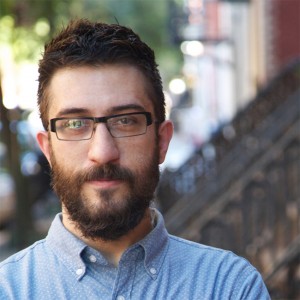My name is Fabricio Teixeira, and I lead the UX discipline at R/GA San Francisco. R/GA is an integrated company that creates products and services for top notch global brands – and help them communicate those products and services out to the world. R/GA is in a very unique position, right at the intersection of building stories and systems, and the value we deliver to our clients can really help transform their business.
Did you start your career from a junior position? What was the turning point in your professional path?
I started as an intern 11 years ago back in Brazil, at the most exciting digital agency out there – Isobar. The biggest turning point in my career was when I decided to start sharing what I learned about UX back to the UX community – through articles, tweets, interviews, podcasts and tons of other types of content on the web. The process of reading about UX, processing all the info I would gather, and sharing my point of view back to the world ended up being a great way for me to develop my own perspective on things – and learn how to articulate it in a clear and concise way.
If you could get back to the beginning of your career and suggest how to become an user experience designer, what would be your advice?
Do it. You will never feel like you know enough. Do it anyway. If you wait until you're ready, you'll never start anything. Get started. Read. Learn. Practice. Get better. "Jump off cliffs and build your wings on the way down".
What books helped you to learn UX design theory? Do you think it is an important aspect of developing skills?
I think our discipline requires a learning model that is more dynamic and flexible than books. UX blogs and sites are my favorite source of information, and I spend at least an hour a day reading about topics that relate to what I do everyday. That being said, there was one book that really helped get me hooked into UX: The Design of Everyday Things. Strongly recommended.
What tools are involved in your UX design process?
Not a big fan of discussing tools and software. They're just a means to an end. The tools I use the most are Google Slides, Google Spreadsheet, pen and paper.
What is your ideal work environment? Do you prefer staying at a studio during your working hours or visit cafes to dilute the routine?
I definitely prefer working at a studio, have my own desk and be able to go into "headphone mode" once or twice a day to be able to really concentrate on the work. But I would say I spend about 80% of my day away from my desk: talking to people, sketching solutions on a whiteboard, attending meetings (not the funniest thing on Earth) and/or coaching my team about the work they're doing. If you work with UX and you're spending too much time sitting at your desk, something is wrong. UX is all about other people.
